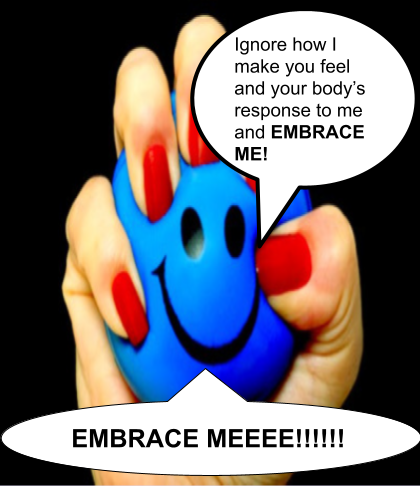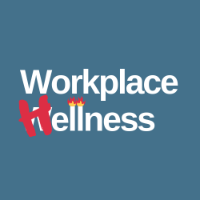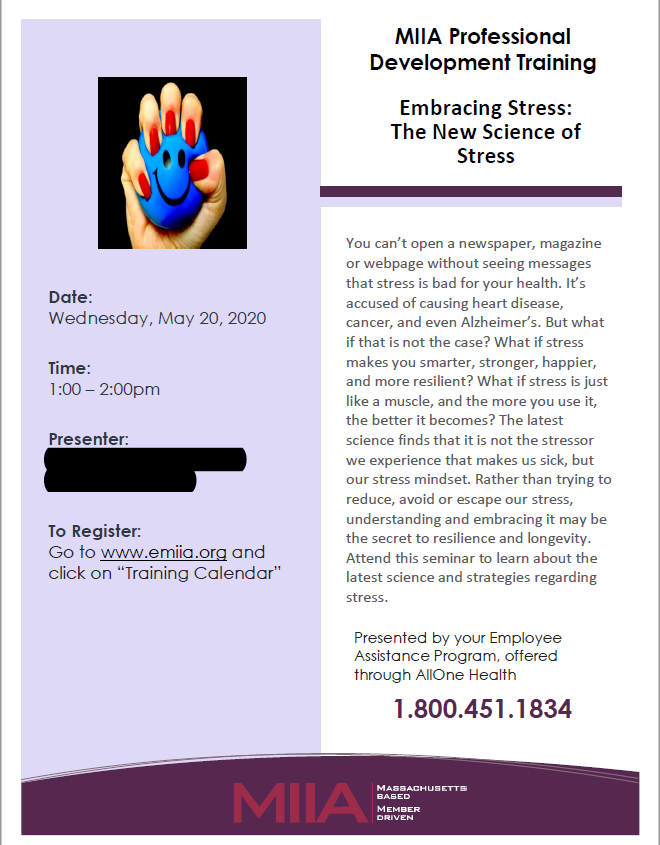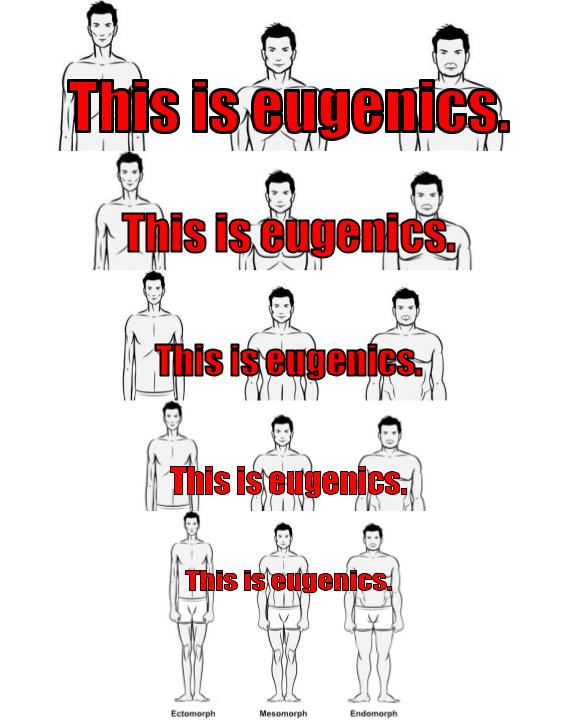
CW: Capitalist nonsense, implied victim blaming
Workplace Hellness is back, baby! I took an extended vacation from posting because my house burned down, then there was a pandemic, and as a result I took my own advice for once and took care of myself. But the workplace wellness horrors continued to pile up in my absence, and I couldn’t resist their siren songs any longer.
This week I want to look at how workplace wellness programming weaponizes the concept of resilience to make workers compliant with unhealthy workplace expectations and practices. A friend of the blog alerted me to a workplace wellness session called “Embracing Stress: The New Science of Stress,” which is offered by workplace wellness company AllOne Health. (Unfortunately, they have nothing to do with Dr. Bronner’s soap.)
A disclaimer: I don’t have access to this session and what’s covered in it, so maybe it’s great! Maybe it doesn’t victim blame or let your employer off the hook for your understandably stressed response to unreasonable workloads. Maybe science (that all-knowing being) really does support the idea that stress is our secret best friend (you know, like a bully romance where they were mean to you because they loved you all along). But given this poster’s general awfulness, I highly doubt it. If you have been through this session, I’d love to hear from you about the experience.
The poster has so many layers of awfulness that I want to spend some time unpacking it. First, the language, “[Stress is] accused of causing heart disease, cancer, and even Alzheimer’s” frames the conversation in terms of the judicial system. Stress isn’t just posited to cause problems, it’s “accused,” which suggests that we should presume that it is innocent until proven guilty, I guess. Our own subjective experiences of stress and its negative effects can’t be trusted—we must give stress a fair hearing!
Second, the use of questions is interesting because it weaponizes my love of rethinking commonly-held beliefs against me and tries to get me to question whether or not stress is bad. (Spoiler alert: it’s bad. Don’t let that smiley-face stress ball convince you otherwise!)

These questions are doing a lot of work and tapping into deep wells of American cultural beliefs, so it’s worth taking them one-by-one:
“But what if that is not the case?” This appeals to every bro who ever devil’s advocate-d. I hate this. We do need to question commonly-held beliefs, but only when there is ample evidence that we need to or when those beliefs are actively harming people. This sort of devil’s advocacy seems more along the lines of “but are women really funny?” or “does racism actually exist anymore?” This question aims to make us content with the status quo and not dream of a workplace where our boss Chardington doesn’t surprise assign projects and then change his mind every day about what the deliverables should look like.
“What if stress makes you smarter, stronger, happier, and more resilient?” Oh man, this one is both patently silly and also deeply harmful because it taps into the American belief that stress means you’re out there grinding, building your brand, doing good work and that not being stressed means you’re lazy, not fulfilling your potential, or tragically lacking ambition. This question, to put it simply, sucks.
“What if stress is just like a muscle, and the more you use it, the better it becomes?” I lost the thread here somewhere because now stress is something I work out? I have thought about this question for more time than it deserves, and I have no idea what it’s trying to say. It posits stress as a fundamental part of the human body as opposed to an experience or reaction that comes and goes, and it also suggests that we…do reps? interval train with it to make our stress even more swole? I don’t know. I don’t think it’s worth knowing.
The questions work to set up the pitch for the program, which will teach us that stress isn’t the problem, our response to it is. (And yes, you should be thinking about how this gets weaponized against people in other ways: “Racism isn’t the problem, your being unhappy about it is! Just keep your head down and work hard instead of advocating for change.” / “Your boss is harassing you? Have you tried setting boundaries and self-care?” / “The workplace isn’t accessible to you? Have you tried being grateful that we have a cargo elevator you can fit your wheelchair into?”)
The poster also does a couple of classic bad moves, like appealing to “the latest science” and saying that “understanding and embracing [stress] may be the secret to resilience and longevity.” I love hate appeals to Science as a singular entity. Science is set up here as a foil to the “messages that stress is bad for your health” that appear in popular media. This is sneaky because it presents a truth/falsehood binary with science on the side of truth and media on the side of falsehood, which is a pretty dangerous binary to create, especially since most media reporting on science isn’t critical enough to begin with. Additionally, The “secret to resilience and longevity” falls into the category of “one weird trick” advice: embrace stress and you’ll live forever and get through anything!

As with all “one weird tricks,” throw this one directly into the sun.
But this line also reveals that the underlying ideology of the poster is what I’ve come to think of as The Cult of Resilience. (I’m using the term in the sense of “great devotion to a person, idea, object, movement, or work,” you know, like the Cult of True Womanhood.) If you haven’t run into resilience before I’m 1) shocked and 2) jealous. The word is everywhere these days, especially in communication about the pandemic.
The arm of Kaiser Permanente that does workplace wellness has this to say about resilience: “Defined as a combination of recovery, adaptability, and grit, resilience enables people to overcome stressful situations — emerging stronger and more capable.” An AllOne Health on-demand webinar about resilience says something similar: “So, every time that you experience stress or trauma in our lives, as humans will experience, we have an amount of ability to bounce back to our pre-stress or -trauma health level, where we’re like totally back to normal.”
The thing to notice in both of these definitions is that resilience is individual. Someone is going to “overcome” something stressful or “bounce back” and move past the crisis or trauma better than before. (Hopefully this language is setting off the Ableism Alarm in your head.) American culture is obsessed with overcoming, vanquishing, and other tropes that depend on a victory/defeat binary, and I would argue that resilience is popular in part because it slots into those existing views.
The AllOne Health webinar makes this idea of improvement through overcoming explicit when the speaker compares resilience to how diamonds are formed “with tons and tons of pressure on them. And that pressure is very extreme. What you get from all that pressure is something of value. Something that is precious to us as humans.” First, this is gross and implies that if you don’t emerge from stress, crisis, or trauma better and stronger than you were before then you have somehow failed. Second, it’s wrong. Diamonds are formed through a much weirder and cooler process than that facile metaphor would have you believe! (Side quest: become a “how diamonds are formed” evangelist and preach the glories of subduction zones near and far.)
Promoting resilience in this way, teaching people to embrace stress instead of changing the status quo, it all ends up making individuals 100% responsible for their state of mind and circumstances and absolving employers and other institutions of blame. They are no longer the target for intervention: we are. This is nothing new. I’ve talked about the focus on individuals before as well as how institutions pretend to care about your mental health while really trying to get you to accept your shitty working conditions.
I’ll keep writing about the Cult of Resilience in future posts because there’s too much to cover in just one. Until then, my friends, remain as cantankerous as you need to in the face of relentless workplace wellness messaging.






